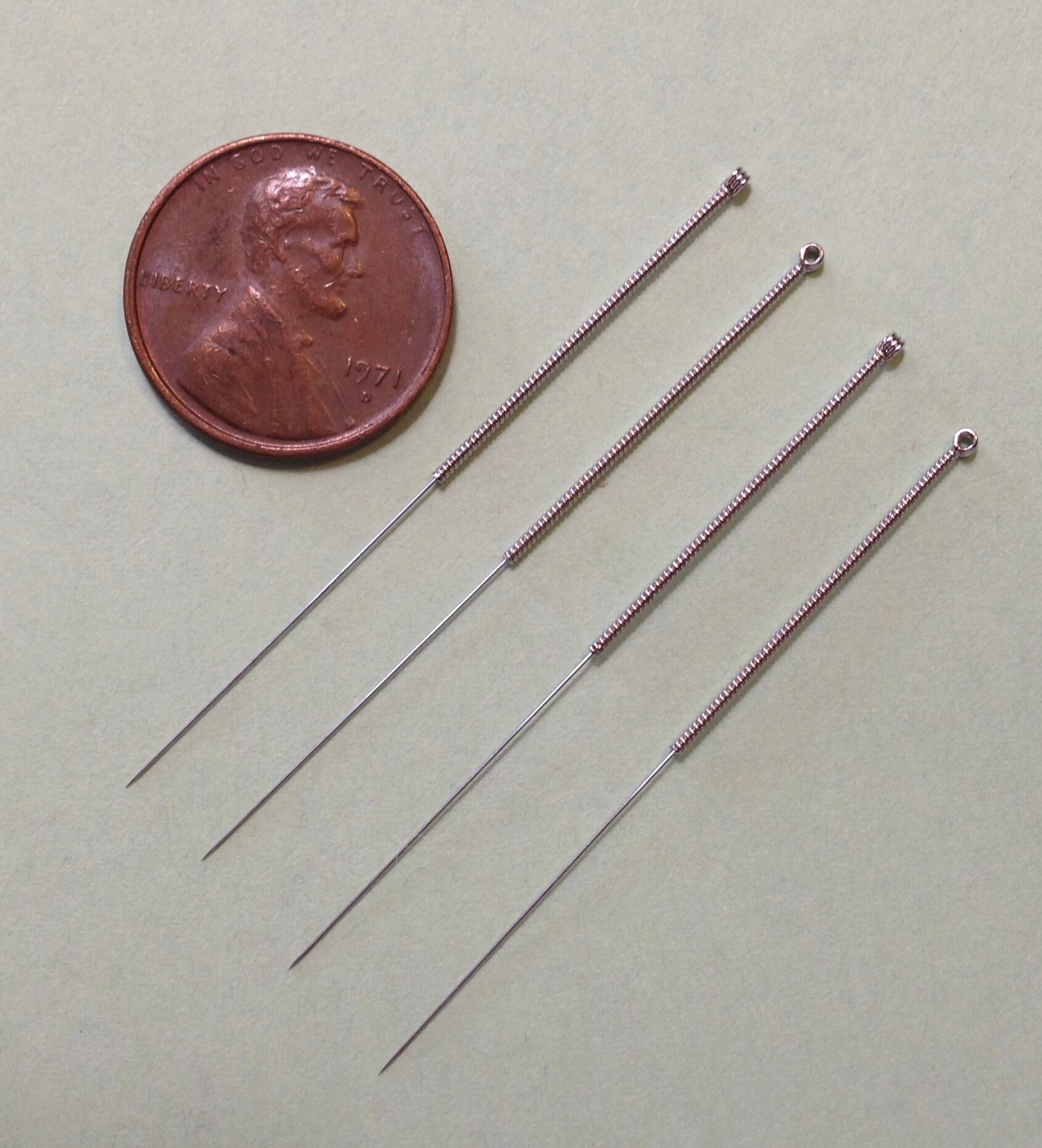
Frequently asked questions.
What is acupuncture?
Acupuncture is the strategic insertion of thin needles at specific points on the body. Groups of needled points (“point prescriptions”) are specifically tailored to a patient’s healing process and always change minimally or drastically from treatment to treatment.is one modality of Chinese Medicine. Click here to learn more about Acupuncture, Herbal Medicine and all of the other modalities you might experience when you heal with us.
does it hurt?
Because acupuncture needles are extremely small, the experience of acupuncture can be pain free. That being said, acupuncture is rarely free of sensation. Some patients may experience Da Qi. Da Qi often occurs locally at the acupuncture points upon insertion and manipulation of the needles, but can also occur during the treatment, or even locally after you’ve left the treatment room! This is a good sign because it means that the body is responding to the needles. Da Qi can take many forms: sometimes it’s a dull ache, sometimes it’s a very short lasting zing! of energy. Some people even feel a tickle! All bodies and conditions are different and it’s important to use your treatment as a time to check in with how and what you are feeling. Always communicate with your acupuncturist if a needle is persistently sharp or “electric” or if the pain is distracting. Pain happens from time to time with all patients and practitioners, but it’s not a sign of something bad. Speak up and your acupuncturist can adjust the needle or point prescription as needed.
What’s a treatment like?
A standard follow-up acupuncture treatment consists of 2 parts. The first part is the intake and observation, and the second part is the actual treatment.
The intake:
This is where we assess your condition and complete a review of systems. Precise diagnosis is key for a successful treatment strategy so a comprehensive holistic intake is crucial. Chinese Medicine doesn’t work in a vacuum and it’s important for the acupuncturist to get a full picture of your body and mind as the condition in question progresses.
During the intake I’ll ask you to stick out your tongue and I’ll feel your pulse. In Chinese Medicine, although subjective information from the patient is incredibly helpful, tongue and pulse are crucial observational information that inform our treatment plan. It’s a little strange at first but patients get used to it very quickly!
The treatment:
After the intake, the patient gets on the massage table for acupuncture. A treatment usually lasts 25-30 minutes and can involve a range of modalities. In addition to needles, your practitioner might choose to also use an infrared heat lamp, moxibustion, cupping, gua-sha or various liniments. At least some of this time will be spent alone while the needles do their work.
Do you take insurance?
In short, yes. I work with patients as an out-of-network provider. I am happy to provide superbills for patients to submit to their insurance company. For more info email Laura@rootandbloomacu.com
What are Your hours?
Appointments are available Tuesday through Thursday from 9am to 7pm with extended flexibility. If you can’t meet during those hours, we will do our best to accommodate your schedule.
Is it safe?
Yes! Acupuncture is a highly regulated medical field that is licensed by state and overseen by the NCCAOM (National Certification Commission for Acupuncture and Oriental Medicine). In order to be licensed and registered by the national board, acupuncturists must:
(acupuncture only): complete 3 years of full-time graduate work
(acupuncture and herbs): complete 4 years of full-time graduate work
depending on state and status, successfully pass 2-5 board exams in Diagnostic theory, application, bioscience, herbology, and laws and safety.
The graduate curriculum includes not only practical needle technique and safety, but a rigorous course-load that includes Chinese Medicine theory and history, diagnosis and application, biosciences (anatomy, physiology, biochemistry, biology, pathophysiology, pharmacology), and study of point location and application (there are over 400 according to TCM!). Practitioners who study Herbalism memorize both the function and application of single herbs and then learn to synthesize formulas for personalized care.
In addition to coursework, all students are required to complete supervised clinic hours and one-on-one patient care.
Credentials aside, it is possible to be injured by someone without adequate training and understanding of functional anatomy. For this reason you should only see licensed acupuncturists and/or herbalists. Chinese Medicine works, but it doesn’t work in a vacuum.if you are being treated by someone who doesn’t understand the diagnostic and treatment system through which acupuncture was developed over thousands of years, you may be mistreated (i.e make the disease worse) or risk being injured.
What does acupuncture treat?
A better question is, “what doesn’t acupuncture treat?” Often patients are introduced to acupuncture as a “last resort”, but there are many conditions that Chinese Medicine treats safely, efficiently and with lasting results.
While Root & Bloom specializes in digestive and gynecological health, here are examples of commonly treated chief complaints and associated concerns:
chronic and acute musculoskeletal pain and injury
neuropathy and neurological symptoms (Migraine, headache, Trigeminal Neuralgia, carpal tunnel syndrome, Bell’s Palsy, post-stroke rehabilitation and paralysis)
gynecology (endometriosis, PCOS, delayed menarche and menstrual irregularity, PMS, dysmenorrhea, hormonal acne, pre and post-natal care, post-partum care, cramps, menopause)
chronic musculoskeletal disease and pain syndromes (MS, fibromyalgia, EDS, scoliosis)
digestive diseases (IBS, Crohn’s and colitis, malabsorption, eating disorder, Celiac, leaky gut, heartburn, ulcers, nausea and vomiting, constipation/diarrhea, gastritis, food sensitivity and intolerances)
Respiratory Disorders (asthma, acute and chronic rhinitis and sinusitis, cough, seasonal allergies)
Thyroid disease and disorders
chronic fatigue and brain fog
toothache
TMJ
mental health concerns such as depression, anxiety, anger and stress relief
male and female fertility
transitioning
side effects of and symptoms from chemo/radiation
side effects and symptoms of medications
symptoms from lyme disease and parasites
dermatology (rashes, eczema, psoriasis, sores, acne)
post-surgical care
so much more!
Just like Chinese Medicine provides solutions and outcomes where Western Medicine has failed, there are areas in which Western Medicine is invaluable and necessary. It is crucial that all patients at Root & Bloom are in the care of and in contact with a primary care provider. Communication and honesty is key to a successful integrative health experience.
